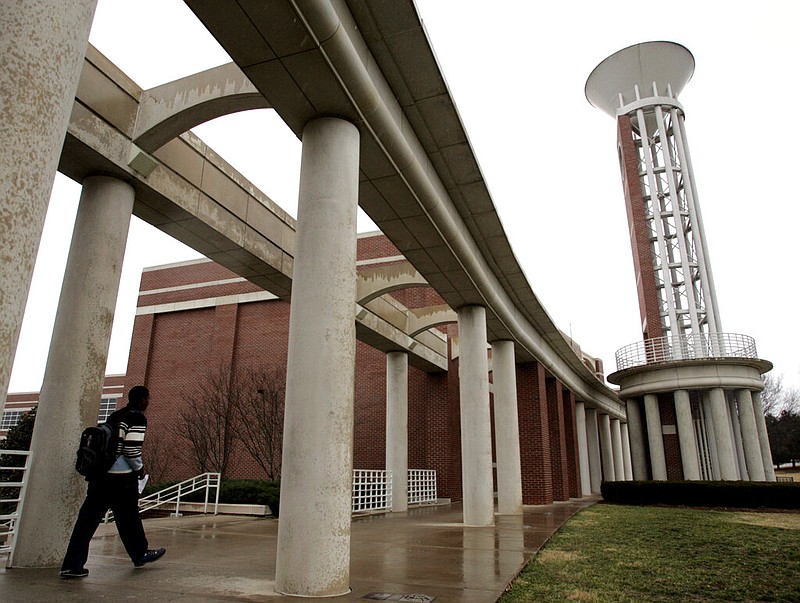The state of Tennessee shorted historically Black college Tennessee State University by $150 million to $544 million in land grant funds over more than 100 years, according to a state report released Monday.
In light of the revelation, TSU President Glenda Glover said she expects the state to make up for that funding loss so the university can expand programs and scholarships.
"You can't have one university and put them out front and a second university and have them in the closet and then tell both of them: Go out there and compete," Glover said.
Using the current formula for funding the state's two land grant colleges, the University of Tennessee and Tennessee State University, TSU received $150 million less than it should have dating back to 1956, according to the report by House Budget Analysis Director Peter Muller. TSU was founded in 1912 to serve Black students.
Under a previous 3-to-1 formula, the outcome was even worse, with the state shorting TSU by $544 million, according to the report Muller gave to the Legislature's Land Grant Institution Funding Committee. The federal government makes a grant to the state for UT and TSU, and the Legislature is responsible for matching that money for each institution.
But the report shows TSU didn't receive money in many years.
Rep. Harold Love, a Nashville Democrat whose district includes TSU, said the numbers were based on budget books in the Legislative Library and, in many cases, the study had to extrapolate figures where no entry was made in the budget for land grant money TSU should have received.
"There was nothing in the budget books for Tennessee State from 1956 to 2006," Love said.
He called the report a "crucial step" in the committee's work to investigate how much the state should pay TSU and noted he hopes a plan can be put together soon
Muller explained that TSU's agriculture program existed during those years but that no state appropriation was made for it in the budget document. He noted that TSU did receive its full federal allotment each year.
Rep. Chris Todd, a Jackson Republican, and Sen. Janice Bowling, a Tullahoma Republican, appeared to resist the study's figures. Todd said legislators need to find out how the 3:1 ratio was set and whether it had been followed since 1913. The state now provides land grant funds at a rate of 11% for TSU and 89% for UT.
Bowling questioned whether the state is "chasing" the wrong solution when the University of Tennessee and Tennessee State University are no longer "separate but equal" for white and Black students.
Todd and Bowling also asked whether funding could have been affected by a lower student population, fewer extension programs and less scholarship students.
Love, however, pointed out that TSU was founded for Black students because they weren't allowed to enroll at UT. Love, whose father, the late Rep. Harold Love Sr., fought for better funding for TSU, said the state could have broken federal law by failing to fund TSU correctly as a land grant university.
Sen. Richard Briggs, a Knoxville Republican serving on the committee, argued that the Legislature needs to figure out a "make-up number" to provide TSU the funds it should have received.
"Over a half-billion dollars is not going to happen" in one year, Briggs said, but he suggested amends could be made over several years. He added the state needs "to do what should have been done the last 100 years."
The committee did not take any action on the study Monday. But Sen. Brenda Gilmore, a Nashville Democrat, urged members to recognize the problems TSU has faced for decades because of the funding shortage.
She pointed out the TSU administration has been criticized in some instances for problems such as a lack of hot water on campus.
"We do have to acknowledge in the past TSU has not received equitable funding," Gilmore said. She added the Legislature has a "moral obligation" to make up for those lost funds.
Love and Gilmore said they don't want to pit TSU against UT.
"Imagine how glorious it will be when both of our land grants are marching in lockstep with their full funding from the state of Tennessee, able to help all of our students, all of our farmers, all of our scientists, all of our 4-H students to make us a model for land grants," Love said.
Read more at TennesseeLookout.com.
